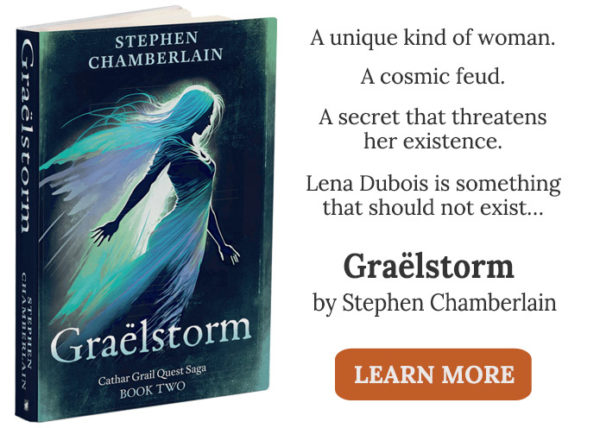“We all face a choice. We can choose to press forward with a better model of cooperation and integration. Or we can retreat into a world sharply divided, and ultimately in conflict, along age-old lines of nation and tribe and race and religion.” – Barack Obama
The Group Instinct
Tribalism is human nature. We are social creatures that like to belong to a group. It was our ancestors’ ticket to survival in a hostile world, and whether as part of a family, gang, sect, or team, the impulse to “belong” is a primal instinct.
Some science-fiction writers gaze into the future and see the utopia of a united world. This aspiration has been around since ancient times. Chinese emperors claimed to be rulers of all under heaven, but there has never been a political government of all humanity, one with jurisdiction over the entire world.
There have been stepping stones—alliances among tribes for mutual protection and self-governing states uniting under a federal government. The Swiss Confederacy, the United States of America, and the European Union were all inspired by the notion of “stronger together.” And yet, for all their federal flags and national anthems, none of these unions have evolved into a single mega-tribe. They remain prone to division along self-interested or ideological lines. History teaches how swiftly people divide into groups and then discriminate in favor of the one to which they belong.
When Two Tribes Go to War
Humans are also empathetic creatures. We are loyal to those we identify with. But empathy is a double-edged sword. We can be hostile and brutal to those who are outside our group—animosity often rooted in religious, ethnic, economic, or political diversity. No matter whether differences are real or imaginary, we regress to tribalism when we perceive threats from outsiders. And we are capable of attacking them without remorse. As George Orwell said, “There is no crime, absolutely none, that cannot be condoned when ‘our side’ commits it.”
This “us or them” response might have helped our ancestors survive when another tribe tried to kill them or steal their territory and resources. But it comes with a downside. Once we connect with a group, our identities become bound to it. And the more partisan our views grow, the harder it becomes to understand how other groups think and feel. This trait is called an empathy gap, which the nefarious can weaponize for their personal agenda.
The Digital Tribe
Social media has made us more tribal. Like-minded people promote and support each another while ostracizing those who disagree. Dissenters become traitors and our views so one-sided that we trust only the information disseminated by our tribe, regardless of whether that information is correct. You only have to look back over the last five years to see how social media use entrenches tribalism. It widened the gulf between Remainers and Leavers during the UK’s Brexit debate, just as Trump used it to leverage the division in America between red and blue tribes.
Tribal behavior is not a bad thing per se. It’s where it leads when our opinions gravitate to extremes, and we give rein to our darker natures. But human empathy is a paradox. While we can demonize outsiders based on sympathy with the in-group, empathy can inspire us to tolerate and cooperate with each other. It starts by listening to the other side and then following the values of our moral compass. As Obama said, we can “choose to reject those who appeal to our worst impulses and embrace those who appeal to our best.”
Beyond “Us and Them”
If that seems to be an unreachable goal, consider my adopted home—the Swiss Confederation. With origins going back to the thirteenth century, it comprises a federation of twenty-six largely autonomous states, or cantons, that border Germany, Austria, Italy, and France. It’s a conglomerate of languages and cultures in which a citizen’s local roots run deep. Even today, most Swiss define their identity by reference to their municipality and canton before their nation state. So what holds this country together, when its four official languages—German, French, Italian, and Romansh—are symbols of a profoundly multicultural state?
Swiss democracy is not founded on suppressing tribal differences, but rather on taking them seriously and focusing on shared values to mitigate their dangers. These values are based on significant autonomy for its municipalities and cantons, minimum centralization, a system of direct democracy, and a deep distrust of majorities and charismatic leaders.
In some countries, “winner-takes-all” politics foment a two-party system that exacerbates tribal rifts. The Swiss understand this and have electoral rules to avoid it. Theirs is a system of institutionalized consensus reinforced by national proportional representation and regional representation in the nation’s parliament—one embracing all cantons and major parties in a grand coalition that is not conducive to all-or-nothing hyper-partisanship. Even the Swiss executive is designed to promote compromise. Consisting of a seven-member Federal Council elected by the Parliament, it comprises representatives of the four largest parties and the three major linguistic regions. Every member directs a cabinet ministry, and each serves a one-year term in rotation as president. The president chairs the Federal Council, but otherwise has no special powers. In effect, there is no single head of state.
I’m not claiming the Swiss system is without limitations or that divisions between groups don’t exist. But tribalism less easily defines its policies, and that’s got to be a step in the right direction. Tribal thinking was once necessary for our survival. Today it impels us to attack what makes us different and must be recognized as dangerous. When tribalism turns toxic, there’s no point appealing to the other tribe’s better instincts. It takes a consensus-driven system to bridge the divide—one rooted in shared values and the common good—one that prevents the domination of one side or another.

Stephen Chamberlain is the author of the fantasy novel Graëlfire. He draws inspiration from the impact of landscape on myth, and the association of liminality with the supernatural and magic. Stephen lives in Switzerland.




I love reading your blog posts. I just discovered you and am going back to read more. I am not a fantasy novel reader so I do not have any comments on your novel but I certainly enjoy and agree with your personal take on our world and societies. Thank you.
Dear Diana,
Thanks for your kind feedback. I’m delighted you enjoy reading my posts.
Best regards,
Stephen